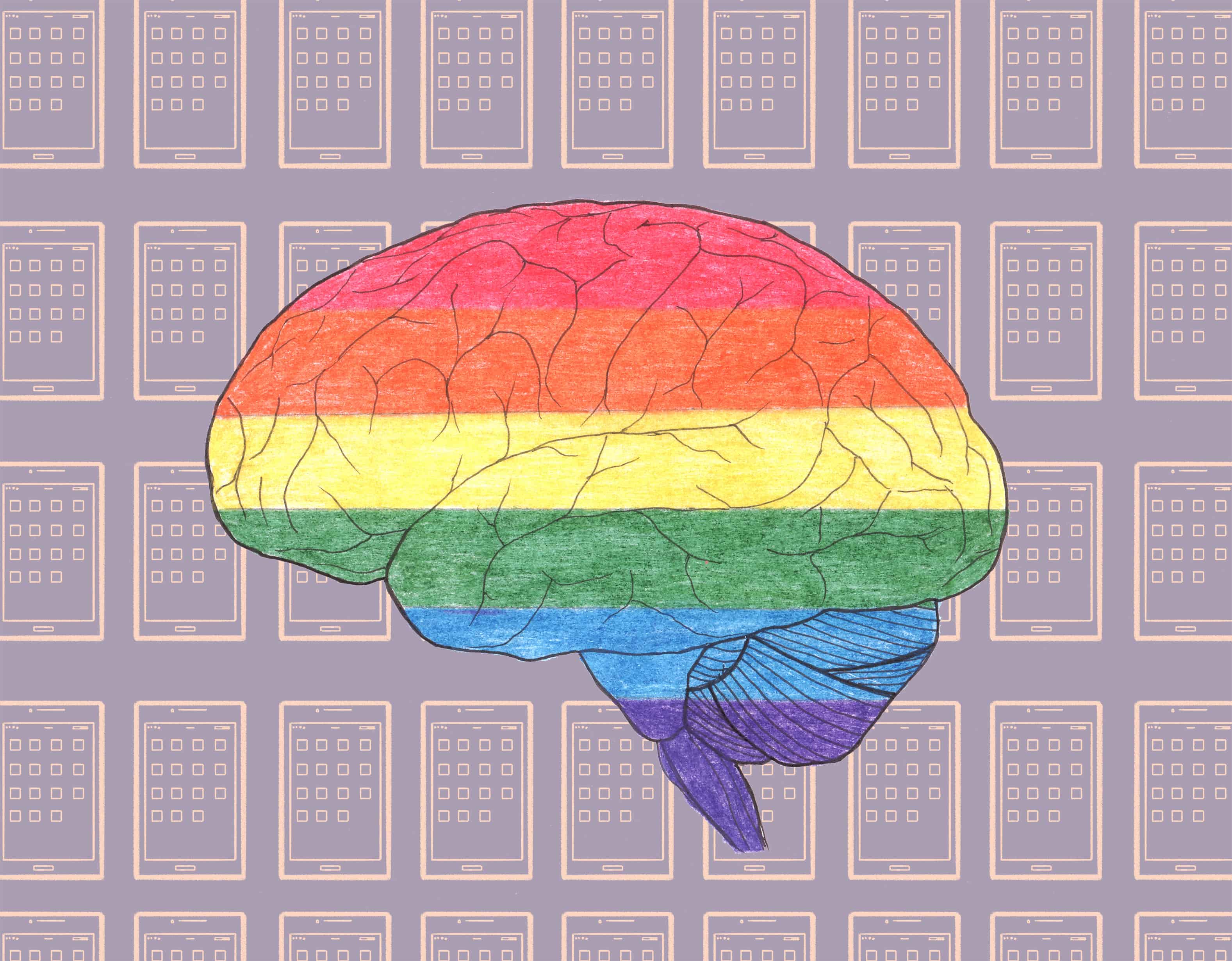Growing up in the suburbs with a traditional Desi family and coming to terms with my sexual orientation, I had hope that one day I would fit into a tangible gay community. I placed high expectations on dating apps like Grindr to provide that sense of community.
The result is that now, rather than having anxieties about coming out anxieties arise for me when one of my white gay friends says that they find Grindr a useful tool to make connections. Though I’ve experienced some success using Grindr on and off for almost two years, it has also been the source of many problems. Grindr fails to foster community for individuals who do not fit in the cis, white, able-bodied, fit, masculine mould — in this way, it is reflective of the mainstream gay community in general.
Hook-up apps such as Grindr and Scruff — not to mention the omnipresent Tinder — have now become ubiquitous. In 2000, 20 per cent of gay couples met online, a figure that skyrocketed to 70 per cent in 2010. Grindr is a prominent feature of gay culture, and installing it has become a rite of passage for young gay men.
At the same time, many members of the gay community are experiencing a mental health crisis, one that is not significantly improving despite parallel strides toward representation and legal equality. The use of hook-up and dating apps can aggravate these concerns, especially along intersectional lines.
[pullquote]Coming out is not a single effort, but rather a process that all members of the LGBTQ community endure throughout their lives.[/pullquote]
Globally, gay men are still more likely to experience mental illness than straight men. A recent Huffington Post article by Michael Hobbes brings attention to an international “epidemic of gay loneliness.” In the Netherlands, gay men are three times more likely to suffer from a mood disorder. In Sweden, the suicide rate for men married to other men is triple that for men married to women. In Canada, more gay men in recent years have died from suicide than HIV-related causes.
Hobbes also starts a discussion on minority stress, which is caused by the additional effort required in various situations if one is also a member of a minority group. For example, if a gay couple wishes to avoid homophobic aggression while travelling, they are more conscious of their body language and actions, avoiding any public displays of affection.
This is a reality for gay men who are open about their sexual orientation, in spite of the common misconception that coming out of the closet signals the end of a struggle. Coming out is not a single effort, but rather a process that all members of the LGBTQ community endure throughout their lives.
While Grindr is a wonderful way to meet other gay men, its ubiquity has normalized problematic behaviours toward minorities. The ‘no strings attached’ hook-up culture associated with apps like Grindr often pressures younger gay men into using hook-up apps to pursue casual sex instead of seeking meaningful, long-term relationships — adding an element of fetishization on the basis of skin colour and ethnicity for racialized gay men.
In this vein, Hobbes notes the alternative prejudices that exist within the gay community along intersectional lines: “All of a sudden it’s not your gayness that gets you rejected. It’s your weight, or your income, or your race.” Hook-up apps play a role in placing this prejudice front and centre. A 2015 study conducted by William Elder suggests that 90 per cent of gay men on the app wanted a partner who was tall, young, white, muscular, and masculine.
There is also a personal inner dialogue that takes place when interacting with Grindr and trying to fit into the mould. I’ve constantly asked myself whether I should be looking for meaningless hook-ups, if I should subscribe to a specific ‘tribe’ based on my body type, or if I should overlook the casual racism that is ubiquitous in the gay community.
Throughout their lives, gay men are burdened with the idea that they do not belong. And though many gay men find a community in which to feel at home, the rejection of gay men who do not fit pre-established criteria only fuels depression and anxiety.
Though I am confident in my own personal identity and understand that the mould created by dating apps is not one I necessarily want to fit into, there is some grief for the community I envisioned as a teenager. It is the expectation that the gay community will be welcoming that may further aggravate mental health concerns for gay men when this expectation is not fulfilled.
Ultimately, a shift in attitudes toward gay men who do not fit into the cisgender, white, able-bodied, fit, masculine mould is necessary. This kind of change is systemic and will take time. Meanwhile, however, we ought to acknowledge that apps like Grindr cater to a very specific niche and should not be considered rites of passage insofar as they fail to be inclusive to entire segments of the gay community.
Avneet Sharma is a second-year student at Trinity College studying English and Cinema Studies. His column appears every three weeks.


